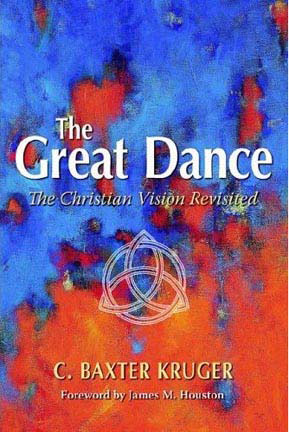
I have been reading C. Baxter Kruger’s book, The Great Dance: The Christian Vision Revisited and I don’t know but it seems like I have already read his book. Maybe because I’ve heard him in video interviews, heard him personally in a conference in 2007 in the US, and I have read many of his short articles through the years. Or maybe, I’ve already read excerpts of this book somewhere—quoted by others. I got this book as a gift from my daughter which surprised me to my delight.

I’m almost done with the book and I’m reading that part where Baxter talks about the reality of our being in union with the Father, Son and Holy Spirit. Being in union with the Triune God is our reality—our home. Deep inside us we yearn for home. Aligning ourselves with this reality gives us joy. To deviate from this truth is to experience sorrow and pain.
The Great Dance and Our Union with God
Knowing, embracing, believing the truth about our union with God through Christ gives us peace, joy and happiness. To be away from home, to be separated and lost in a big city as Baxter experienced when he was a young boy, is to experience fear, anxiety, sorrow and pain.
We belong to the Father, Son and Holy Spirit. We are in union with our God. This is the truth. This is our reality. That is why we long for home. And it pains us to be away from home. If we are not in reality in union with the Father, Son and Holy Spirit, then it wouldn’t matter at all if we’re apart from them. We wouldn’t be hurt. We won’t be longing for home. But the fact is, we all long to be home. This is evidence we are in union with our loving God. We were created for adoption into the inner circle of the life and love of the Father, Son and Holy Spirit—to be part of that great banquet, that great dance throughout eternity.
Related blog:
- Longing to be Home





